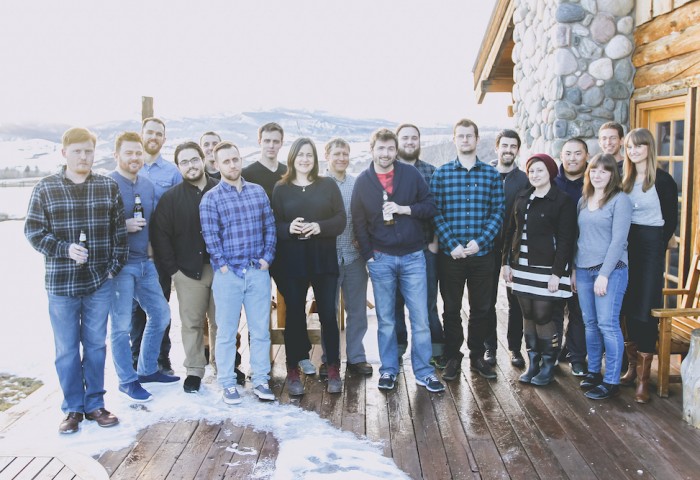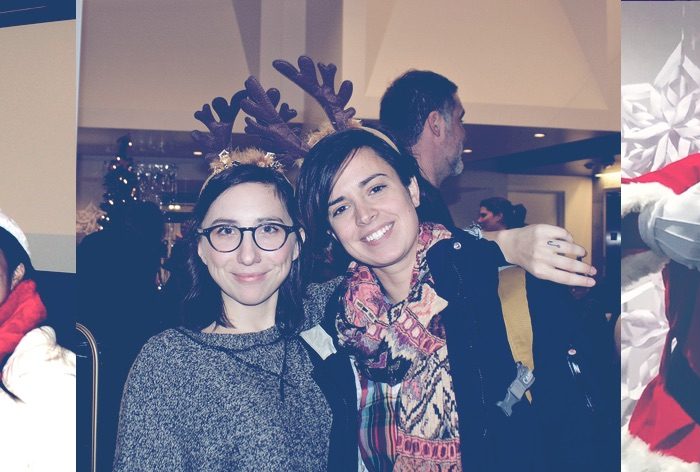Susannah Gray, Flystein’s Director of Marketing, PR & Communications tells us about how their company works, their team, and shares some strategies for being successful as a distributed organization.
How many employees and contractors do you have?
Three staff and our team of eight Flight Experts, who all work as freelancers.
What’s the importance of location independence at your company?
Our two Co-Founders, Vlad Protasov and Roman Kalyakin, are perpetual world wanderers who both embrace a digital nomad lifestyle, so it’s really a no-brainer for us that location does not factor into our work.
Our business is helping people to travel for less so we also encourage our team to work from whichever location they’ve managed to find a cheap flight to.
Did you start with the intention of having a distributed or nomadic team? If not, when did you decide to support people working remotely?
Yes. Our Co-Founders are based on different continents so the only option was to start off as a distributed company.
What are some of the challenges you face as a team without a central location or office?
Timezones are always the biggest challenge for us: our Co-Founders are based in Europe and Australia respectively, and our Marketing operations are based in West Coast USA. Our Flight Experts are dotted around the globe — and the entire team is moving around all the time (our Marketing Director is currently in Europe for a few weeks and one Co-Founder just returned from a three month stint in Thailand where he was escaping the Northern European winter). It can be a real challenge to get everyone online at the same time without someone having to set the alarm ridiculously early or stay up really late.
What’s the upside that comes with not having a central location or office?
Put simply, people work better when they are free to work when and where they are more productive.
What % of your company regularly works remotely?
100%
Any advice or best practices for supporting the work styles of your teammates from a distance?
Having a central repository for documentation, project management tools, and a good chat client helps. We use Slack to chat throughout the day (and quite often throughout the night too) as well as having regular Skype calls and use Trello to keep our projects on track. Google docs and wikis help us collaborate on documentation. Getting a team together at least three times a year is considered to be good practice for remote companies and one of our products is designed to help companies bring staff together at a central point or exotic, sun-soaked location for staff meetings, retreats and team-building sessions. So we try to practice what we preach and get together as regularly as we can. Fortunately, we know exactly how to get to the most amazing locations for the lowest possible prices!
What types of places do your teammates choose to work from when remote?
The team works from their home office, a co-working space, their local cafe or the beach: whatever works for them that day.
What qualities do you look for when hiring for a distributed team?
Self starting, organized and flexible are the key characteristics we look for in our team members.
You’ve built great products that help the distributed workforce at large. Why did you choose to do that?
Firstly, because we believe that remote working and digital nomadism will become more and more prevalent in the coming years. Secondly, as prolific travelers and seasoned remote workers, our Co-Founders knew that their experience and knowledge could help others save time and money on moving themselves and their teams around the globe.
What are your thoughts on Workfrom’s role in the way work is getting done – now and in the future?
If you’ve ever been to a coffee shop with internet or a co-working space in San Francisco for example, you’ll know that they are packed – every day, all day. The way we are working is changing. Millennials, creatives, entrepreneurs and people who realize that there’s more to life than a corner office are not willing to spend their days boxed into a 9-5, 5-days-a-week lifestyle anymore. These days, all you need to run a business is an internet connection and a device that enables you to connect to it. And as more and more places offer free wifi, and as the internet reaches remote areas, the options are endless.
Is there anything else you’d like to share?
Patience, planning and flexibility is key when you can’t just herd everyone working a project into a meeting room and do a brain-dump for an hour.



Responses